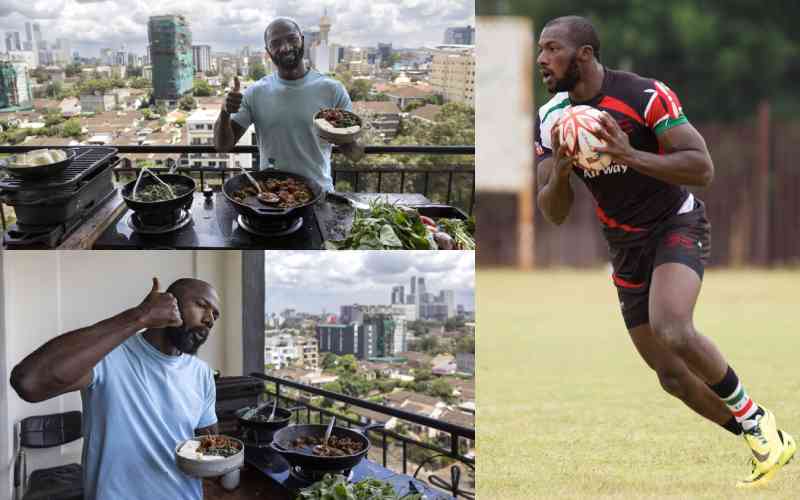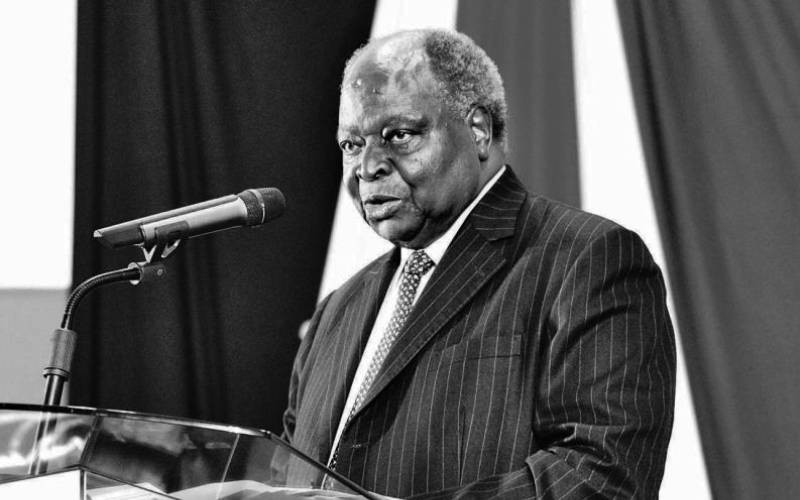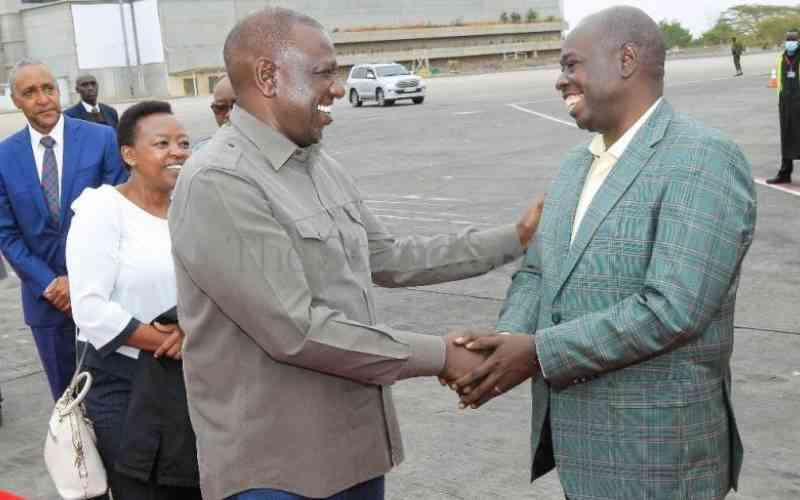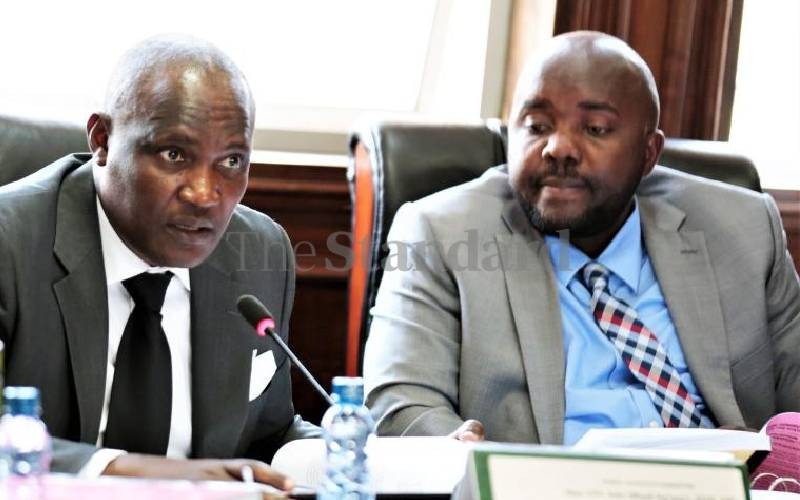Ever since the return of multi-party democracy, Kenya has never realised any freshly-minted president with all of the country’s four presidents being drawn from the old guard.
Retired presidents Daniel Moi and Mwai Kibaki were all veterans whose political careers date back to pre-independence days while President Uhuru Kenyatta served as Cabinet Minister and Deputy Prime Minister before rising to the top job.
He was first nominated as MP in October 1999 when Mark Too resigned to pave way for his entry to Parliament before he was elevated to become Minister for Local Government.
So, why hasn’t Kenya had a president in the form of Barack Obama, who disrupted US politics to ascend the White House in 2009?
In becoming the 44th President of the US, Obama upended the establishment in Washington first defeating former Foreign Secretary Hilary Clinton for the Democratic Party nomination before handing defeat to Republican John McCain.
The icing on the cake was that he was the first Black president in American history. We revisit Obama’slandmark feat following the death of his step grandmother Sarah Obama on Monday this week.
Mama Sarah, as she was fondly known, was the matriarch of Obama’s Kenyan family and helped raise his father, Barack Obama Snr besides anchoring his life shining light on his path to the top.
Though he never met his father after he left the US when he was a young boy, President Obama never forsake his roots, and even put them in a novel, Dreams From My Father.
After connecting with his step sister, Auma, he was to make his first visit to Kenya in 1988 as a 27-year-old.
Kenyans were full of pride when he was elected a state Senator in Illinois and when he later represented the State in the US Congress. More pride was to come when he won the White House with local media dedicating acres of space and airtime to cover the US presidential contest. Some even wanted a piece of his victory.
It is thus ironic that while Kenyans prided themselves with Obama taking him as their own, it is unlikely that he will stand any chance of winning the State House leave alone getting into Parliament.
Outsiders who have previously attempted a stab at the top job have never succeeded even though some enviable CVs.
In the first multiparty election in 1992, among those contesting for the presidency were Chibule wa Tsuma (the first presidential candidate from the Coast) and reformists George Anyona and Mukari Ng’ang’a.
Five years later, the country witnessed two women contestants Charity Ngilu and Wangari Maathai. However, despite a spirited campaign, Ngilu, who was vying on a Social Democratic Party (SDP) ticket came fourth while Labour Party of Kenya’s Maathai came third from last in position 13.
Stay informed. Subscribe to our newsletter
In 2002, Siaya Senator James Orengo, whose reform credentials are not in doubt, attempted to sweep against the tide on an SDP ticket but came a distant fourth behind the winner, National Rainbow Coalition’s Mwai Kibaki, Uhuru Kenyatta (Kanu) and Simeon Nyachae (Ford People).
But it is the 2012 presidential candidates that had the highest number of candidates who brought freshness to the table but did not similarly make it.
They included former Kikuyu MP and senior council Paul Muite (who came last), former Justice Affairs Minister Martha Karua ( the only female candidate in the race), former Planning assistant Minister Peter Kenneth and former Education Permanent Secretary Prof James Ole Kiyiapi.
The next election in 2022 has seen fresh faces such as Baringo Senator Gideon Moi, former Unctad Secretary General Mukisha Kituyi, Machakos Governor Dr Alfred Mutua and his Makueni counterpart Prof Kivutha Kibwana as the some of the leading candidates who have never vied for the presidency or served as deputy president.
The question then is: Will the next president come from this quartet or is Kenya poised for a surprise tenant at State House. Or will it be the same old faces?
According to Prof Macharia Munene, who teaches History and International Relations at USIU-A, such a candidate will have to convince Kenyans that he is more credible than the others.
“Also, he will need access to a lot of spare money to lose it all and put in place a serious strategy team(s) to anticipate challenges,” he said.
Political analyst Dr Wahungu Gitonga also opines that the political establishment will still produce the next president since Kenya’s near future will still be determined by strong alliances, noting what would make the difference is which coalition offers a better deal to the electorate.
“If you look at the unfolding scenarios, the next election will be heavily determined by coalitions. Forget those saying they are offering a fresh start. At the end of the day, regional kingpins will have their way,” he said.
Multimedia University of Kenya journalism lecturer Kipkirui Kap Telwa, on his part, holds that it is not too late for the country to witness a disruption as far as the holder of the top job is concerned.
“Kenya has had four presidents compared to 46 for the US. In my view, therefore, the country is still work in progress and anything can happen. The only difference is that in the US, Obama benefited from grassroots mobilisation and volunteering from first time voters,” said Kap Telwa, who is also a lawyer.
He added that the secret to a winning strategy for the emerging alliances lies in picking a message that resonates with the silent masses and running with it.
Ochieng Ogola, a Nairobi-based economist, puts it down to the “mtu yetu” (our person) syndrome, noting that one must have entrenched himself in society before one can be bestowed with leadership.
“In Kenya, all politics is local. It is not for nothing you hear some qualifying one’s leadership abilities on the basis of the number of harambees or funerals he has attended. It does not matter whether you are intellectually endowed or have lots of professional experience,” Ogola said.
 The Standard Group Plc is a
multi-media organization with investments in media platforms spanning newspaper
print operations, television, radio broadcasting, digital and online services. The
Standard Group is recognized as a leading multi-media house in Kenya with a key
influence in matters of national and international interest.
The Standard Group Plc is a
multi-media organization with investments in media platforms spanning newspaper
print operations, television, radio broadcasting, digital and online services. The
Standard Group is recognized as a leading multi-media house in Kenya with a key
influence in matters of national and international interest.
 The Standard Group Plc is a
multi-media organization with investments in media platforms spanning newspaper
print operations, television, radio broadcasting, digital and online services. The
Standard Group is recognized as a leading multi-media house in Kenya with a key
influence in matters of national and international interest.
The Standard Group Plc is a
multi-media organization with investments in media platforms spanning newspaper
print operations, television, radio broadcasting, digital and online services. The
Standard Group is recognized as a leading multi-media house in Kenya with a key
influence in matters of national and international interest.





